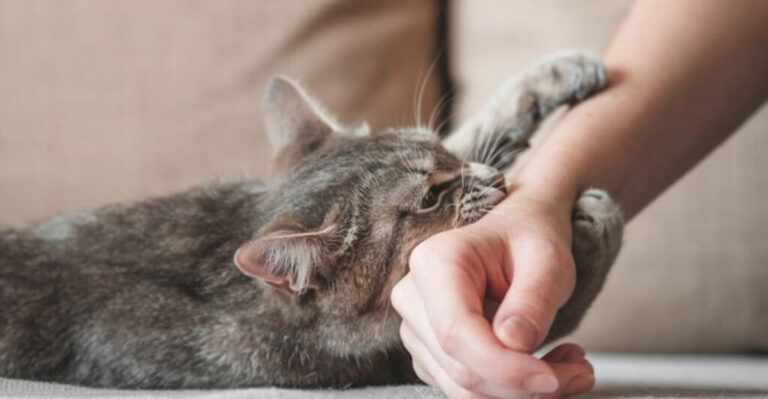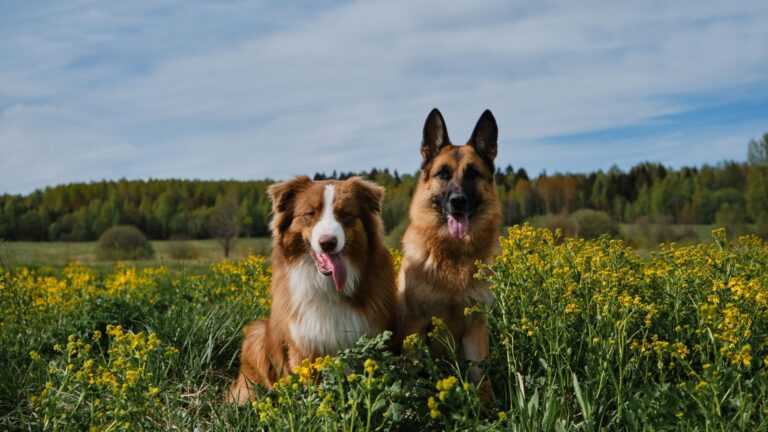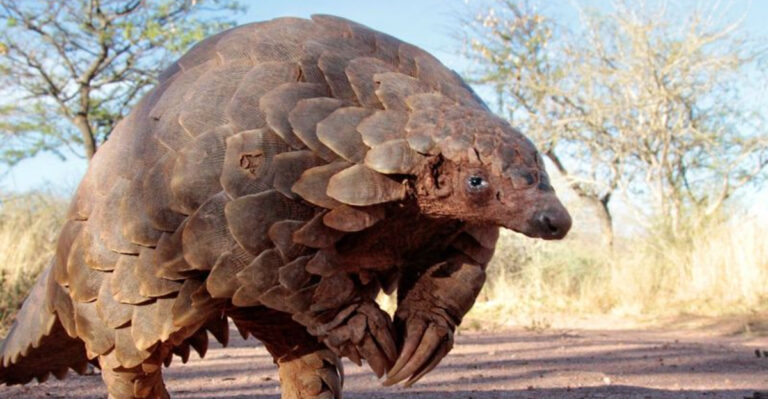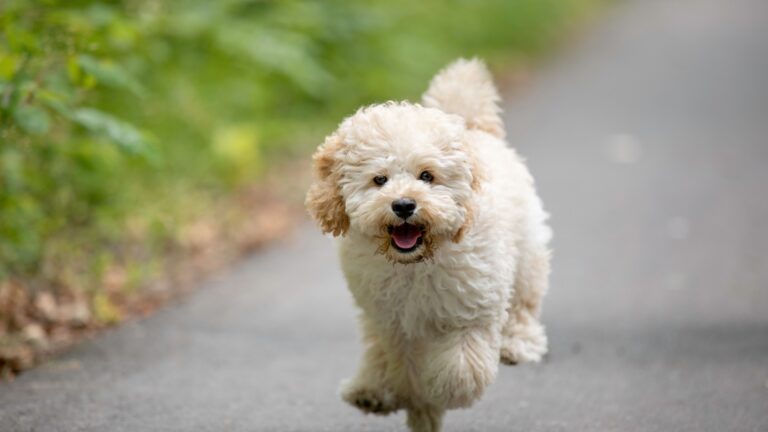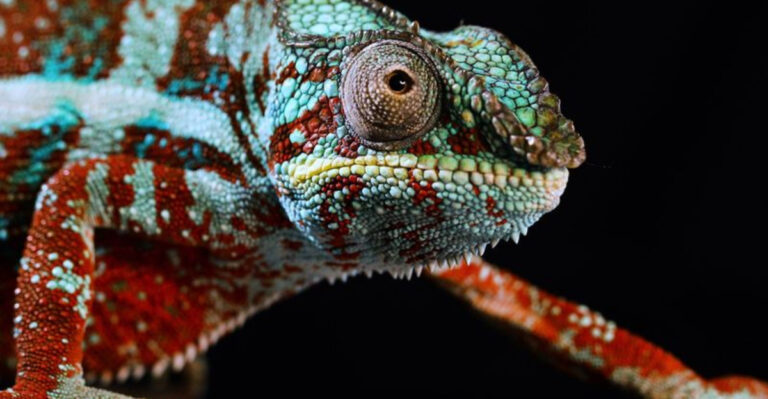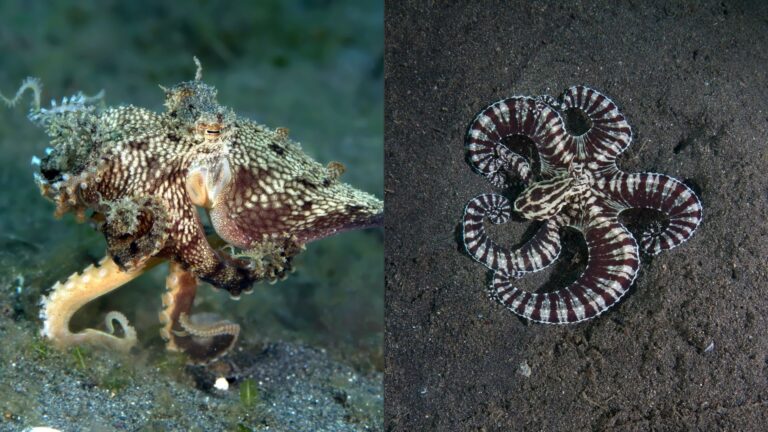9 Key Differences Between Devon Rex And Cornish Rex

The Devon Rex and Cornish Rex, two enchanting cat breeds, often captivate feline enthusiasts with their unique looks and charming personalities. While they might appear similar at first glance with their curly coats, these breeds possess distinct characteristics that set them apart.
This article reveals key differences that highlight the individuality of each breed, making it easier for potential cat owners to choose the one that best fits their lifestyle and preferences.
1. Coat Texture
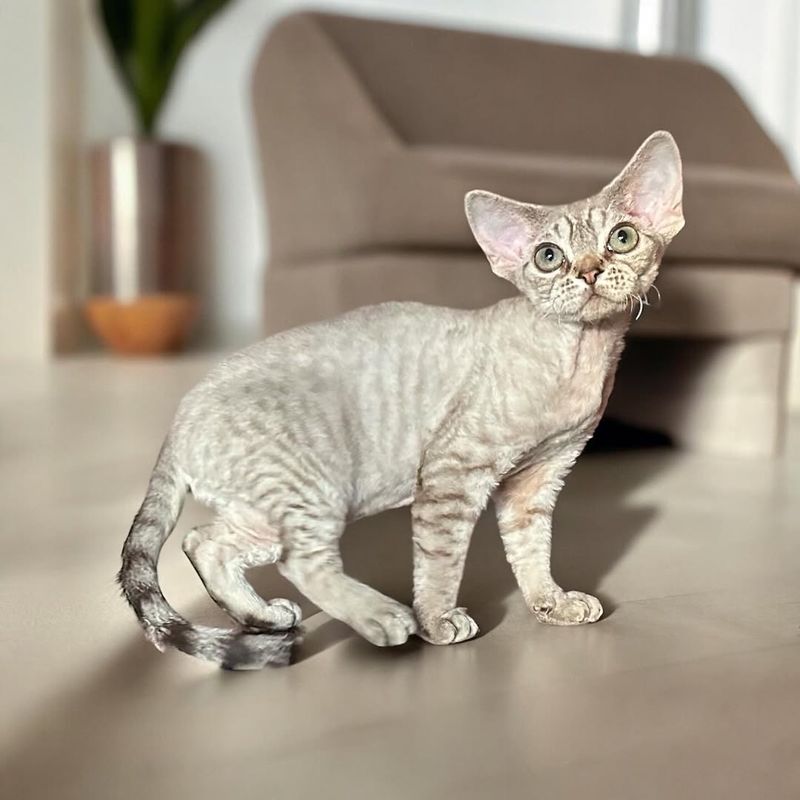
The Devon Rex boasts a coat that’s soft and fine, often compared to a layer of suede. This unique texture is due to the breed’s distinct lack of guard hairs, giving them a velvety feel. Its coat can vary in density, with some areas more sparsely covered, adding to its distinctive appearance.
On the other hand, the Cornish Rex is renowned for its tight, wavy fur. Unlike the Devon Rex, it lacks both guard and awn hairs, resulting in a coat that’s uniformly curled and smooth to the touch. This feature gives the Cornish Rex a sleek, elegant look that stands out among cat breeds.
These differences in coat texture not only affect their grooming needs but also influence allergy considerations for potential owners. While neither breed is completely hypoallergenic, some people find the Cornish Rex’s coat more manageable.
2. Facial Structure
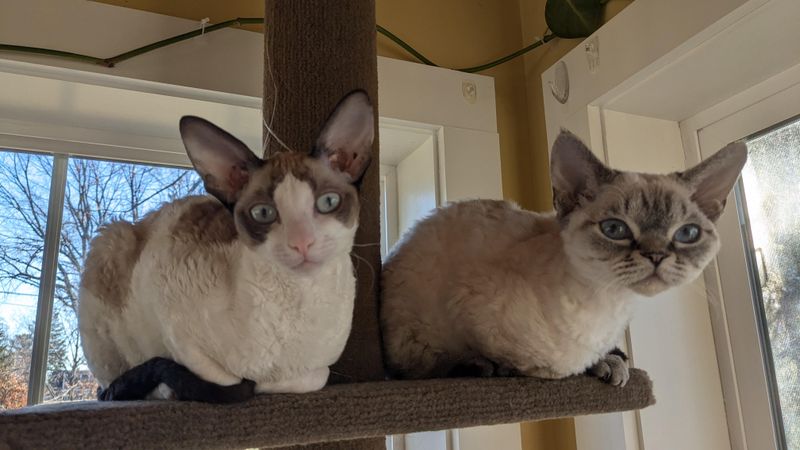
The Devon Rex is easily recognizable by its unique facial structure characterized by a short, broad head and a strong chin. Their large, expressive eyes and prominent cheekbones give them an almost pixie-like appearance, adding to their whimsical charm.
In stark contrast, the Cornish Rex features a more elongated, elegant face with high cheekbones and a Roman-nosed profile. Their slender appearance is accentuated by their large, alert ears, which give them an inquisitive and intelligent look.
These facial differences not only contribute to their distinct physical appearances but also influence their expressions and how they are perceived by humans. Each breed’s facial features add an extra layer of personality, making them stand out in their own unique way.
3. Body Shape
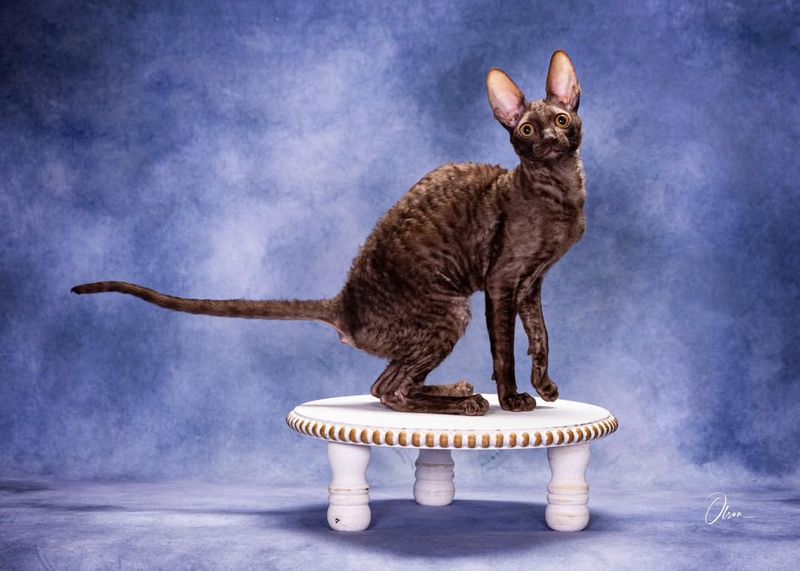
The Devon Rex is known for its compact, muscular body, which gives it a sturdy yet agile appearance. Their broad chest and well-developed hindquarters provide them with an athletic build, making them excellent jumpers.
Conversely, the Cornish Rex is famous for its slender, graceful physique. With a long, thin frame, they possess an almost greyhound-like elegance. Their lithe bodies are built for speed and agility, allowing them to move with unparalleled grace.
These physical contrasts in body shape are not just aesthetic; they also influence the way each breed moves and plays. While both are active and playful, their body structures tailor each breed’s athleticism and behavioral tendencies, appealing to different types of pet owners.
4. Personality Traits
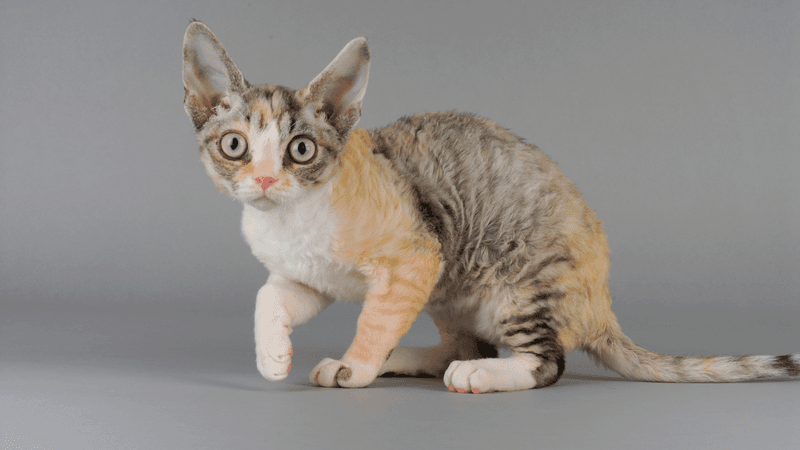
When it comes to personality, Devon Rex cats are often described as playful and mischievous, with an insatiable curiosity that keeps them on the move. Their affectionate nature makes them great companions, as they often seek out human interaction and enjoy being part of the family dynamic.
Cornish Rex cats, while equally affectionate, tend to display a slightly more reserved demeanor. They are gentle and enjoy lounging comfortably, often choosing to observe their surroundings with a calm and collected composure. Despite this, they are also playful and enjoy interactive play sessions.
These personality differences can significantly influence the type of owner each breed is suited for. While Devon Rex cats might be better suited for active households with time to engage in play, Cornish Rex cats might appeal to those looking for a more laid-back companion.
5. Grooming Needs
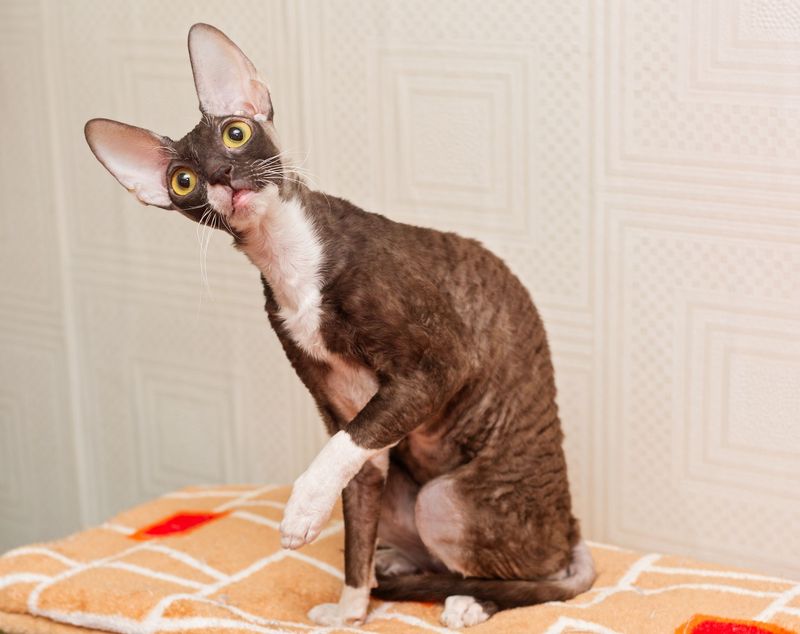
Grooming requirements for these breeds are quite distinct. The Devon Rex, with its sparse coat, requires minimal grooming. A gentle brush once a week is typically enough to maintain its coat’s health and appearance. Additionally, their ears may need regular cleaning due to wax build-up.
The Cornish Rex, despite its curly coat, also has relatively low grooming needs. However, because they lack protective outer fur, their skin can become greasy. Regular baths are recommended to keep their coat clean and healthy. It’s important for owners to use mild shampoo to avoid skin irritation.
Understanding these grooming needs helps potential owners prepare for the maintenance required for each breed. Those seeking a pet with minimal grooming might gravitate towards the Devon Rex, while those open to regular grooming routines might consider a Cornish Rex.
6. Vocalization Patterns
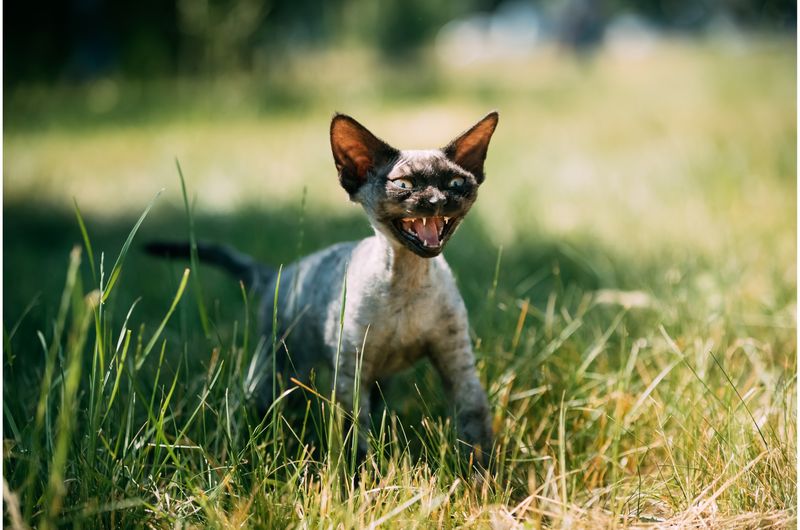
For those who appreciate a chatty feline companion, the Devon Rex is known for its vocal nature. These cats often engage in conversations with their owners, using a variety of meows and purrs to express themselves and communicate their needs.
On the opposite end, the Cornish Rex is more reserved in its vocalizations. While not entirely silent, these cats tend to be less vocal, preferring to communicate through body language and gentle purring.
These vocalization patterns can be an important consideration for potential owners. Those who enjoy engaging in vocal interaction might prefer the Devon Rex, while those seeking a quieter pet might be drawn to the Cornish Rex’s more subdued communication style.
7. Energy Levels
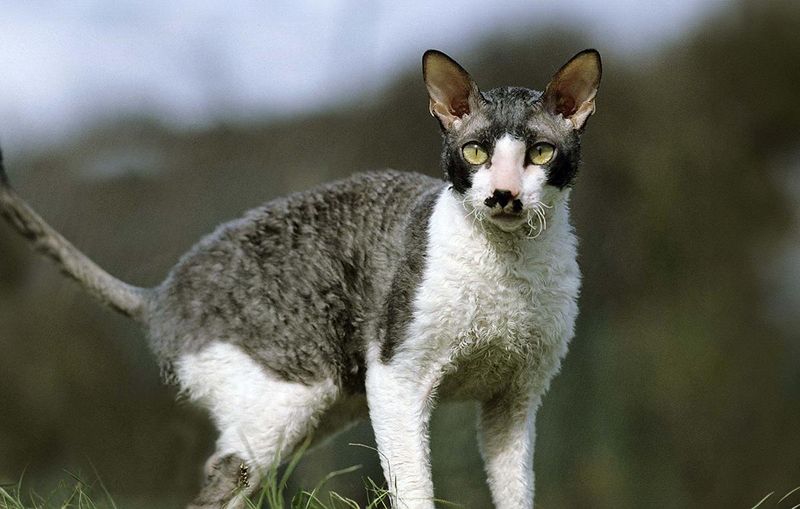
Devon Rex cats are renowned for their high energy levels and zest for life. They thrive in environments where they can explore and play, often seen energetically climbing or jumping around. Their playful antics make them a constant source of entertainment.
In contrast, Cornish Rex cats, while active, tend to have a more moderate energy level. They enjoy playtime but also appreciate long, relaxing periods of rest. Their playful moments are interspersed with calm lounging, creating a balanced lifestyle.
These differences in energy levels can influence the suitability of each breed to a household’s lifestyle. Owners looking for a lively and engaging pet might find the Devon Rex an ideal match, whereas those seeking a more tranquil companion could lean towards the Cornish Rex.
8. Adaptability
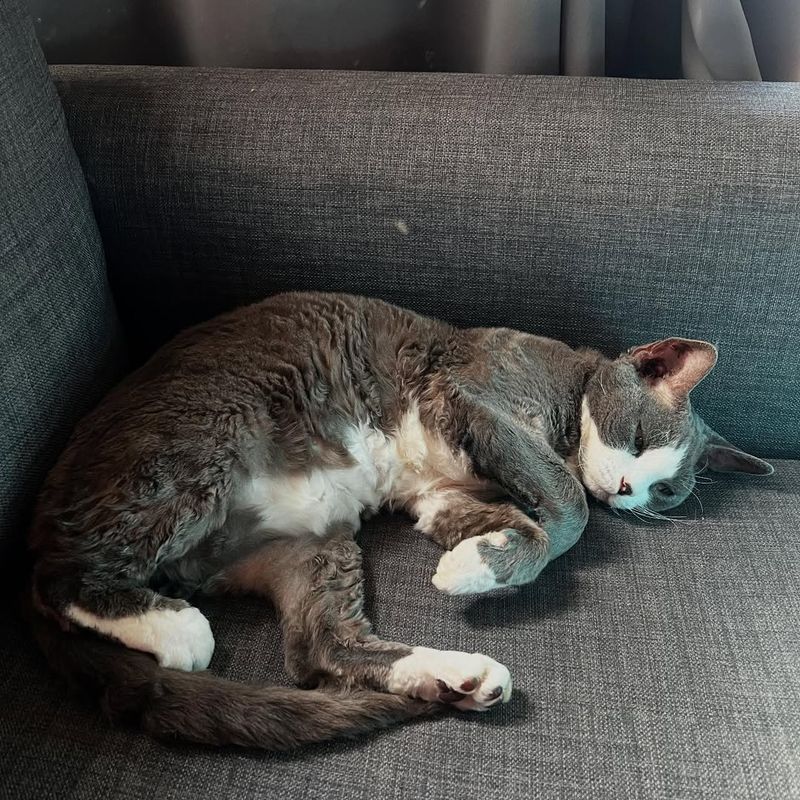
Adaptability is a hallmark of the Devon Rex, known for its ability to adjust quickly to new environments and situations. These cats thrive in dynamic households and can easily become accustomed to changes in surroundings or routine.
In contrast, the Cornish Rex may require more time to adapt to new settings. They appreciate stability and can be sensitive to sudden changes in their environment. A slow, gentle introduction to new experiences often suits them best.
These adaptability traits can be a deciding factor for owners who frequently move or have unpredictable schedules. The Devon Rex’s flexible nature may appeal to those needing a resilient companion, while the Cornish Rex’s preference for routine might attract those with stable living situations.
9. Social Behavior
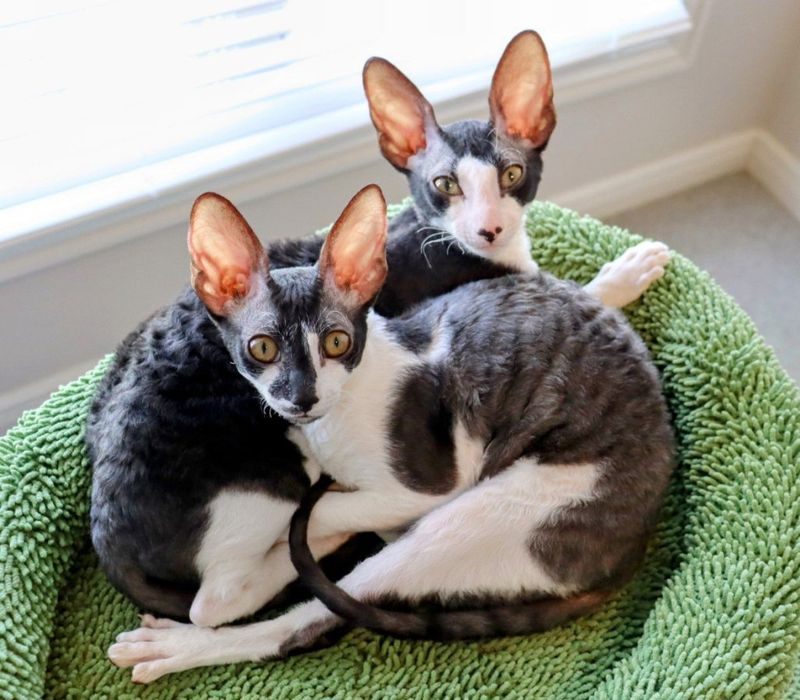
Socially, the Devon Rex is known for its outgoing and sociable nature. These cats are often described as “dog-like” in their interactions, seeking out human company and enjoying social activities with families, including children.
Conversely, the Cornish Rex is often more selective in its social interactions. While they form strong bonds with their owners, they may take time to warm up to new people and situations. Their gentle nature makes them excellent companions for quieter households.
Understanding these social behaviors is crucial for potential owners in matching a cat’s temperament to their home environment. Families with young children might favor the Devon Rex, while those seeking a calm, close companion might find the Cornish Rex more suitable.

